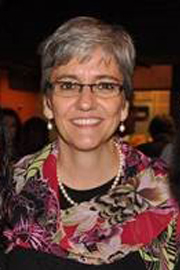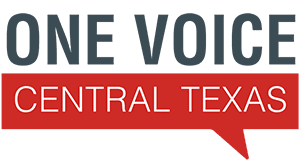
-
Name
Suki Steinhauser -
Title
CEO -
Organization Name
Communities In Schools -
Number of Years as Executive Director
8 years, with 12 years prior experience at CIS administering the ASPIRE Family Literacy program, and developing and leading innovative programming
-
What does your organization do?
Communities In Schools surrounds students with a community of support, empowering them to stay in school and achieve in life. Working full-time and year-round on public school campuses in communities of concentrated poverty, CIS staff leverage community resources and bring their own considerable skills to support the social, emotional and learning needs of young people who face challenges at home, school and the community. With our sister social service organizations, hundreds of volunteers, university interns and CIS AmeriCorps members, CIS case manages 6,500 students a year, in elementary, middle and high schools in 6 school districts. Our work leads to 99% of our students completing the school year, 94% promotion to the next grade, and 87% improving in grades, attendance or behavior. -
How did you become interested in this work?
Right out of college, I joined the Peace Corps and served as a teacher in Swaziland for 3 years. From that experience, I decided to go into some sort of community development nonprofit work. Coming from a family of educators, it was natural for me to gravitate to a nonprofit that combines aspects of community development, social work and education. I feel extremely fortunate to work for an organization that so effectively meets kids where they are, discovers and supports their strengths, and offers them the specific help that they need, removing obstacles to achieve happy, prosperous lives. -
What drives your passion?
I deeply believe everyone deserves a fair chance in life, and that it’s up to all of us to help kids thrive and learn. -
Do you have a mentor or a role model?
While I was in the Peace Corps, I worked for two headmasters. One blamed staff for the school’s failures, jumped to conclusions and pandered to the powerful. The other honored staff for their contributions, asked questions to understand, stood up for what was right. In a very short period of time, I learned how I wanted to lead. -
What's the biggest challenge in your work?
That depends on who you ask. My husband would say I am challenged with effectively separating work and home life. -
What's the best advice that you have ever received?
A seasoned Executive Director (ED) told me that, as the executive director, you are the "face” of your organization. So whether we would be more comfortable in the background or naturally promoting others, it’s important for our organizations that we “represent”. -
What are your top tips for new Executive Directors?
First, get to know a few other EDs very well. When you need advice, they will be able to tell you their war stories and successes and give very, very practical advice on all sorts of things that vex nonprofit EDs.
Second, find someone with whom you can process ideas, strategies or events (good or bad). There are times when you need to think something through and it’s incredibly valuable to find a thought partner who is “safe”.
And finally, decide NOW what’s sacrosanct for your personal life. Date night? Exercise or meditation time? Getting to your kids’ band concerts? Let others know, get it on your calendar, and protect it.
